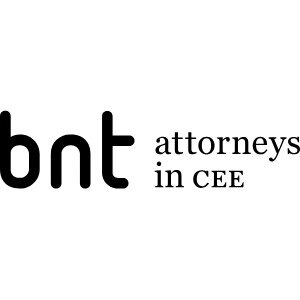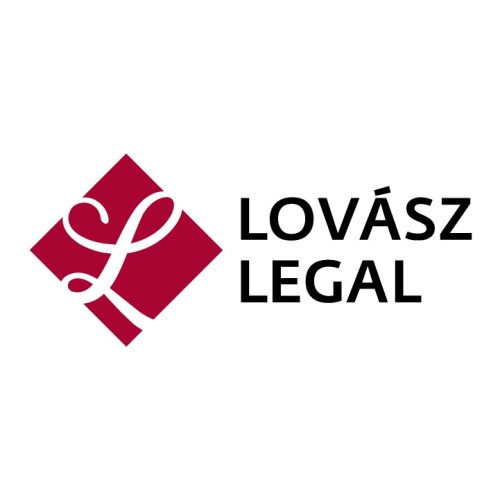Best Public-Private Partnerships (PPP) Lawyers in Slovakia
Share your needs with us, get contacted by law firms.
Free. Takes 2 min.
Or refine your search by selecting a city:
List of the best lawyers in Slovakia
About Public-Private Partnerships (PPP) Law in Slovakia
Public-Private Partnerships, commonly referred to as PPP, are collaborative projects between government entities and private companies to deliver public infrastructure or services. In Slovakia, PPP arrangements are used for the financing, design, construction, operation, and maintenance of projects that serve the public interest. Examples include highways, schools, hospitals, and energy facilities. PPP projects are seen as an alternative method to traditional public procurement, allowing the government to leverage private sector expertise, efficiency, and capital.
Why You May Need a Lawyer
PPP projects involve complex legal, financial, and technical considerations. You may require a lawyer in any of the following situations:
- Drafting and reviewing PPP contracts and agreements to ensure your interests are protected
- Navigating the tendering process and ensuring compliance with procurement rules
- Assessing and allocating risks between the public and private partners
- Negotiating financing arrangements and addressing tax implications
- Resolving disputes arising from project execution or contractual obligations
- Ensuring compliance with local and European Union laws, especially regarding state aid and competition
- Advising on asset ownership, intellectual property, and licensing issues
- Guiding you through project implementation and performance monitoring obligations
- Dealing with amendments, early terminations, or refinancing of PPP projects
- Mitigating reputational and regulatory risks associated with large-scale public projects
Engaging a lawyer experienced in PPP law can help you avoid costly mistakes and ensure your project is successful from start to finish.
Local Laws Overview
PPP projects in Slovakia are principally governed by a combination of Slovak national laws and EU regulations. Key legal frameworks include:
- The Act on Public Procurement - Governs the selection of private partners and procurement process to ensure transparency and competition
- Civil Code and Commercial Code - Regulate contractual relationships and business operations
- Concessions Act - Supplemental regulations for specific types of concession-based PPP projects
- Act on Budgetary Rules of Public Administration - Provides rules for public funding, guarantees, and obligations
- Sector-specific laws - For projects in transport, energy, education, environment, and healthcare, additional regulations may apply
- State Aid and Competition Law - Compliance with both Slovak and EU competition rules is mandatory
PPP agreements must carefully allocate risks, set clear performance standards, and account for project lifecycle issues. The Slovak Ministry of Transport and Construction, along with other sectoral authorities, often oversee the planning and implementation of major PPP projects.
Frequently Asked Questions
What projects in Slovakia are suitable for PPP?
PPP is commonly used for large infrastructure projects such as highways, bridges, water treatment plants, public transport facilities, as well as schools and hospitals. The suitability depends on the project’s complexity, value, and expected benefits from private sector involvement.
How are PPP agreements structured in Slovakia?
Agreements typically detail the responsibilities of each party, project timelines, risk sharing, payment mechanisms, performance standards, penalties for non-compliance, and termination clauses. The most common structures are concessions or build-operate-transfer arrangements.
How is the private partner selected for a PPP project?
A competitive public procurement process is mandatory. This process ensures transparency, non-discrimination, and competition among bidders. The procedures and requirements are set by the Act on Public Procurement.
Do PPP projects require government guarantees?
Government guarantees are not always mandatory but are common in certain high-risk projects to provide security to private investors. These guarantees can cover payment obligations or certain political and regulatory risks.
What are the public sector’s obligations in a PPP?
The public partner typically oversees project monitoring, regulatory compliance, and, in some cases, makes availability payments or user fee collections. They are also responsible for ensuring the project serves public interests according to agreed standards.
Are foreign companies allowed to participate in PPP projects?
Yes, both Slovak and foreign companies can participate as bidders or investors in PPP projects, provided they meet the legal and technical requirements set in the procurement documents.
How are disputes in PPP projects resolved?
Disputes are commonly resolved through negotiation and mediation. If unresolved, matters may proceed to Slovak courts or, if specified in the contract, to arbitration.
What are the key risks in PPP projects?
Risks include construction and operation risks, financial risks, demand and usage risks, regulatory changes, and potential changes in government policy. Proper risk allocation is critical in every PPP agreement.
How long do PPP contracts typically last?
PPP contracts are usually long-term, ranging from 15 to 30 years or even longer, depending on the project’s nature and complexity.
Are PPP projects subject to public scrutiny?
Yes, due to the use of public funds and the involvement of public authorities, PPP projects are subject to transparency requirements, audits, and sometimes public consultation processes as stipulated by law.
Additional Resources
For more information or assistance, consider consulting the following bodies and organizations:
- Slovak Ministry of Transport and Construction - Oversees major infrastructure PPP projects
- Public Procurement Office of the Slovak Republic - Regulates public procurement processes
- Ministry of Finance of the Slovak Republic - Issues guidelines on public finance obligations in PPPs
- Slovak Chamber of Commerce and Industry - Provides resources for business and investment
- European PPP Expertise Centre (EPEC) - Offers guidance and best practices for PPP development
- Local and international law firms with expertise in PPP projects
Next Steps
If you are considering involvement in a PPP project or require legal assistance:
- Identify the scope and sector of your PPP interest
- Gather relevant project information and existing documentation
- Consult with a lawyer experienced in PPP law and public procurement in Slovakia
- Clarify your objectives, concerns, and the role you wish to play in the partnership
- Request a legal assessment of risks, compliance requirements, and contract terms
- Engage legal support early in the process to address issues before they escalate
Careful legal preparation is vital to navigate the complexities of PPP projects in Slovakia and to achieve successful and sustainable outcomes for all parties involved.
Lawzana helps you find the best lawyers and law firms in Slovakia through a curated and pre-screened list of qualified legal professionals. Our platform offers rankings and detailed profiles of attorneys and law firms, allowing you to compare based on practice areas, including Public-Private Partnerships (PPP), experience, and client feedback.
Each profile includes a description of the firm's areas of practice, client reviews, team members and partners, year of establishment, spoken languages, office locations, contact information, social media presence, and any published articles or resources. Most firms on our platform speak English and are experienced in both local and international legal matters.
Get a quote from top-rated law firms in Slovakia — quickly, securely, and without unnecessary hassle.
Disclaimer:
The information provided on this page is for general informational purposes only and does not constitute legal advice. While we strive to ensure the accuracy and relevance of the content, legal information may change over time, and interpretations of the law can vary. You should always consult with a qualified legal professional for advice specific to your situation.
We disclaim all liability for actions taken or not taken based on the content of this page. If you believe any information is incorrect or outdated, please contact us, and we will review and update it where appropriate.
Browse public-private partnerships (ppp) law firms by city in Slovakia
Refine your search by selecting a city.














